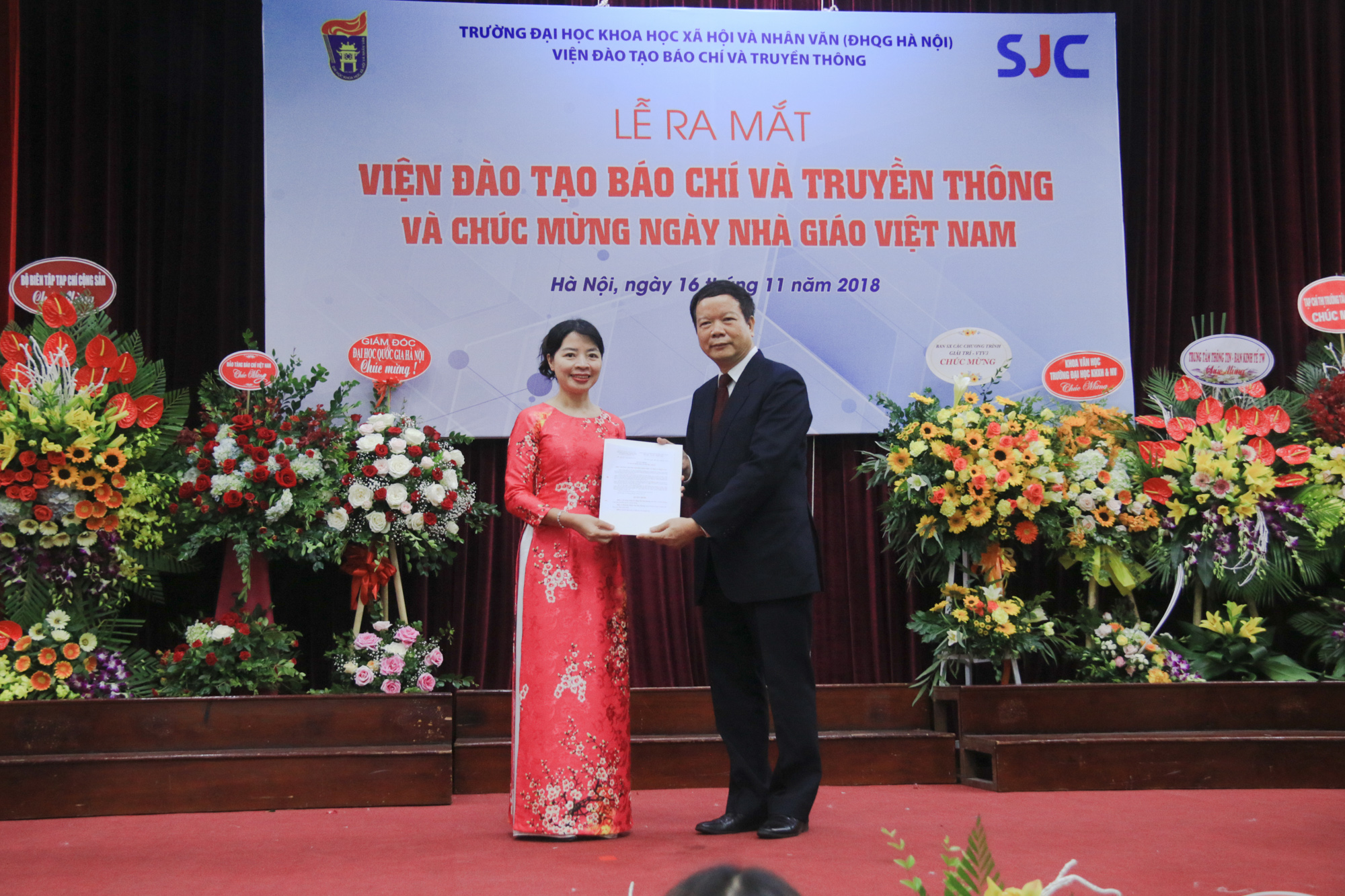
A new name - New marks
In July 2018, the Party cell of the Institute of Journalism and Communication officially received the decision to establish it with a new name. This is an important milestone in the process of establishing the Institute of Journalism and Communication, on the basis of integrating the Faculty of Journalism and Communication and the Center for Journalism and Communication, which is the first model in the University of Social Sciences and Humanities to develop from the faculty level to the Institute level in the spirit of university autonomy.
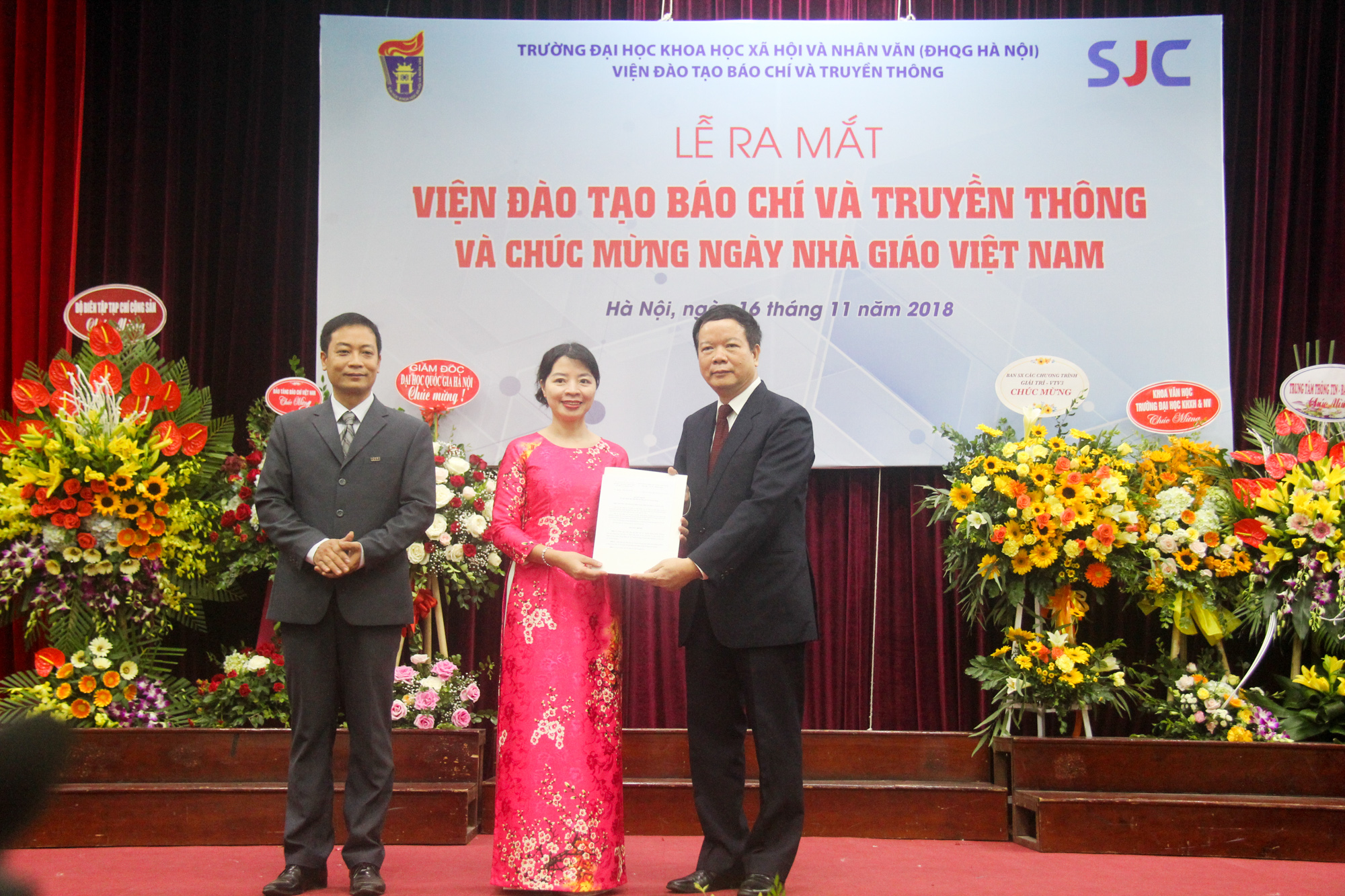
Comrade Nguyen Van Kim (Party Secretary of the School) presented the decision to establish the Institute of Journalism and Communication Training.
We can look at the main features of the results of the activities that the Party Cell of the Institute of Journalism and Communication has achieved in the past three years to see the initiative, creativity and continuous development of the unit. First of all, it is one of the 8 units in the school that directly trains 2 majors at the same time, withThe number of full-time students ranks second in the whole school.. It is one of three remaining units.continue to implement the VLVH training systemin the current difficult context. Over the past three years, among 31 postgraduate training majors in the whole University, the number of registrations and entrance exams of Journalism has always ranked highest,The number of postgraduate students is also the largest..
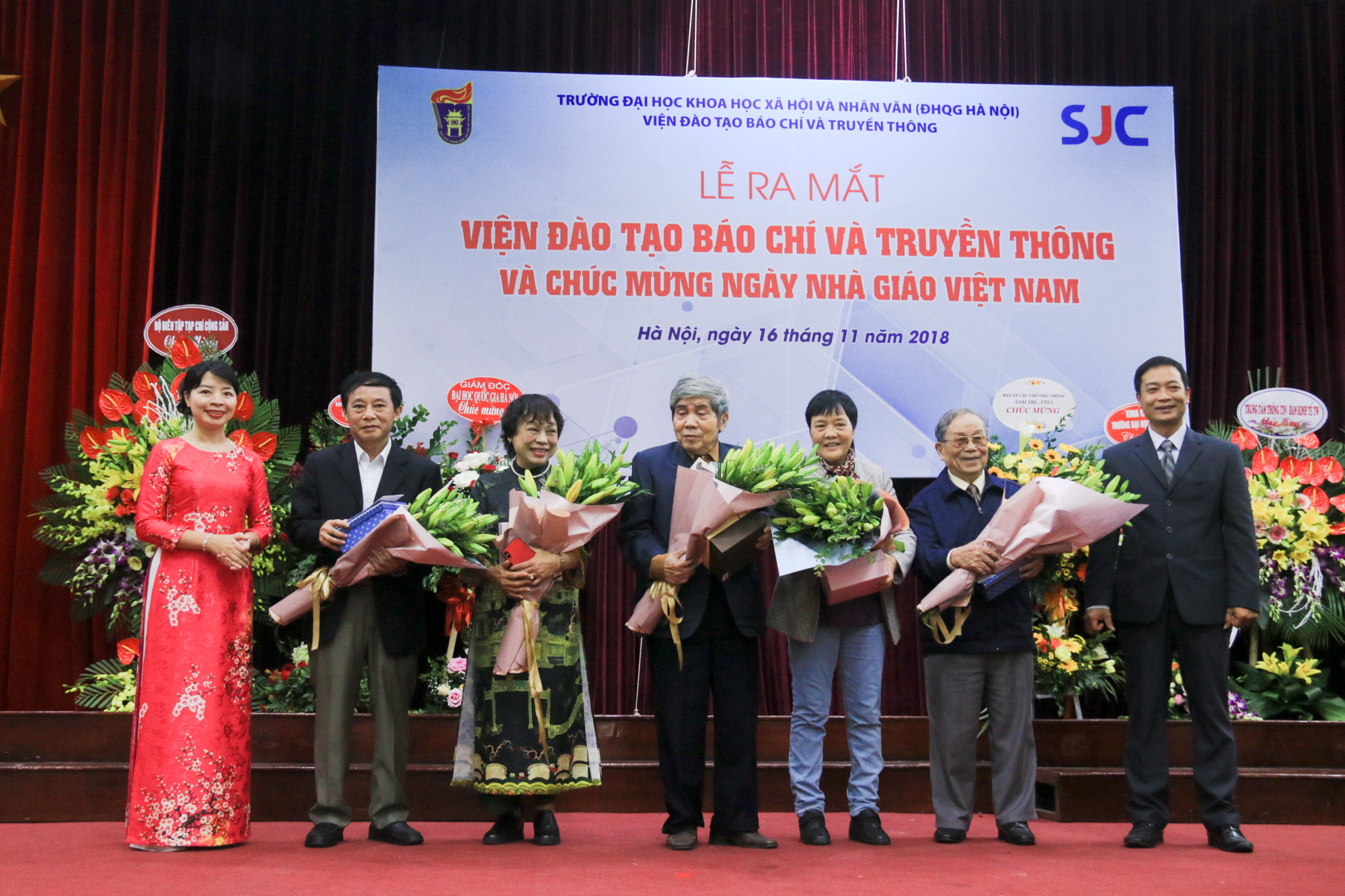
Paying tribute to veteran teachers for their great contributions to the establishment of the Institute
The Institute of Journalism and Communication is proud to be the only unit of the School withexternal training locations School,stretching from the Northwest, Central, to the East and Southwest when implementing the applied Master training program locally. In addition to the 2 classes in Vinh Long and Ca Mau deployed since 2019, the Institute is continuing to open classes in Binh Duong, Vinh Long (course 2), and is expected to be in Da Nang, Da Lat. The Institute is alsoThe only unit with an internationally linked Master's programMedia Management (with Stirling University, UK) in the form of socialization. And it is also one of the 5 units currently implementing the State-level scientific research project, Nafosted, presiding over the task of compiling the National Chronicle (and many other projects at all levels, Funds)...
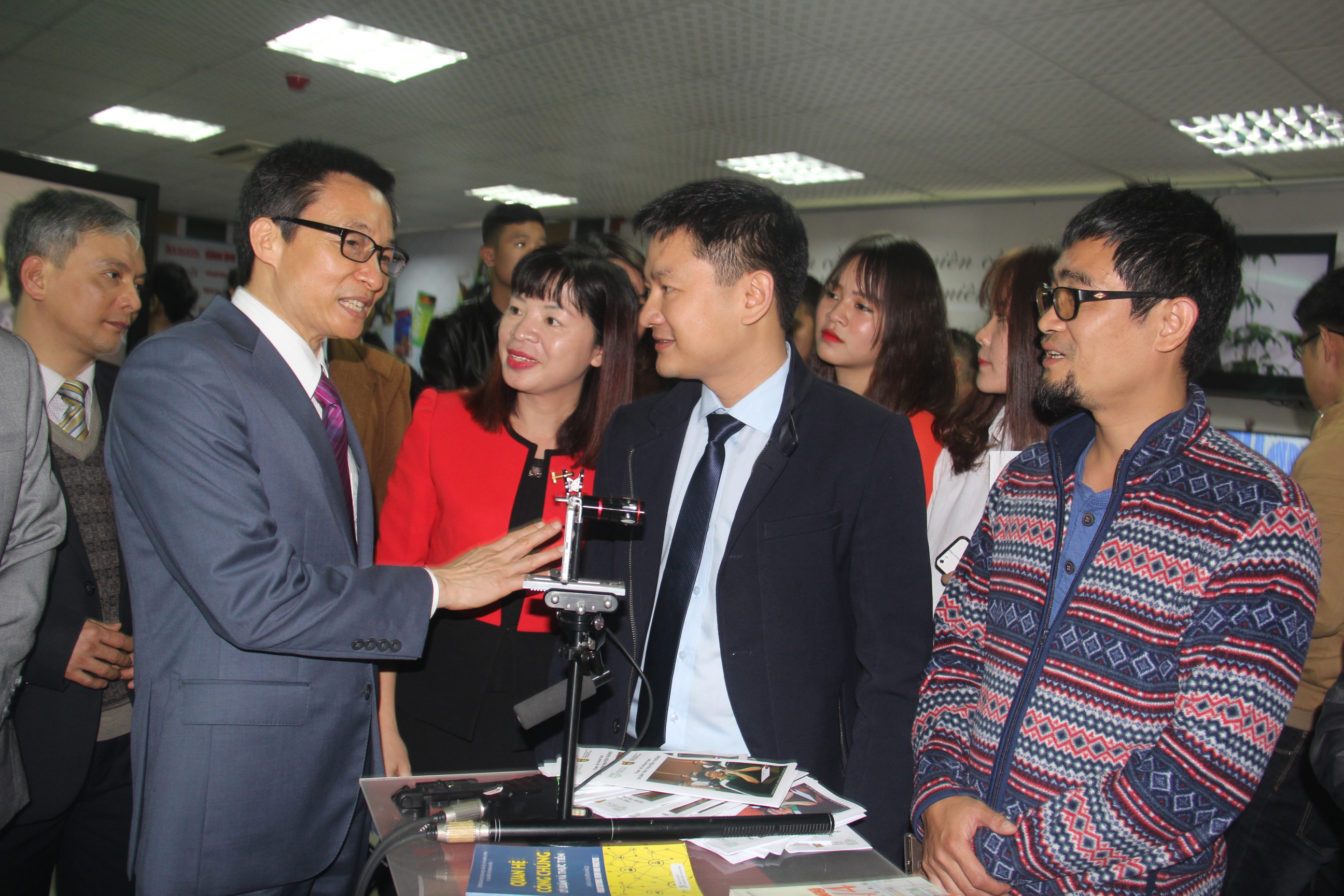
Deputy Prime Minister Vu Duc Dam visits the exhibition booth of the Institute of Journalism and Communication Training at the National Press Conference.
The most obvious mark of innovation is shown through many newly designed and built training programs, namely the Master of Journalism training program with application orientation and the high-quality Bachelor of Journalism training program with social orientation, which have received positive feedback from public opinion. And most recently, the establishment of the Master of Journalism and Communication Management Program is an interdisciplinary program between journalism and communication science and management science and the Master of Journalism and Communication Economics Program (in association with the University of Economics, VNU). The Institute of Journalism and Communication has truly become the focal point for many cooperation activities in training, joint training, and is the destination of many universities and international organizations such as Artevelde University (Belgium), Hallym University (Korea), Stirling (UK), Deakin University (Australia), WCS (World Wildlife Conservation Society of the United States), ... The Institute has coordinated with the Training Department, the Department of Scientific Research Management of the School to organize many seminars, dozens of scientific presentations by international scholars for staff and students inside and outside the school. Many staff participated in short-term training programs, seminars and study tours in China, Russia, Korea, Myanmar ...
Not only successful in training and research activities, the Institute's staff is regularly invited to participate in many social activities, actively contributing to the development of legal documents, management mechanisms, medium/long-term strategies in the field of journalism and communication of many ministries and branches... Over the past 3 years, the image of the Institute has always appeared impressively and won high awards at major events such as the National Press Festival, National PT-TH Festival, etc. Those activities not only contribute to building the prestige and brand of the Institute but also contribute to the overall development of the School and Hanoi National University, recognized by the Party, State and international leaders through certificates of merit, medals and noble awards.
Party work is not just about slogans.
The role of Party work and Party cells is not only in general slogans. Party resolutions at all levels are thoroughly understood and concretized into long-term, medium-term and short-term work programs and plans with the enthusiastic participation and high responsibility of a large number of cadres and students, first of all, all Party members in the Party cells.
The Party Cell of the Institute of Journalism and Communication has only 26 members - but has created a foundation of close solidarity and high consensus within the collective when implementing major development orientations of the School and the unit. The policies of the School Party Committee and the higher-level Party Committee are always closely followed by the Party Cell and concretized in specific directions and action plans. Through democratic exchange and discussion, clear assignment of responsibilities, Party members are attached to each other not only in professional activities but also in daily life.
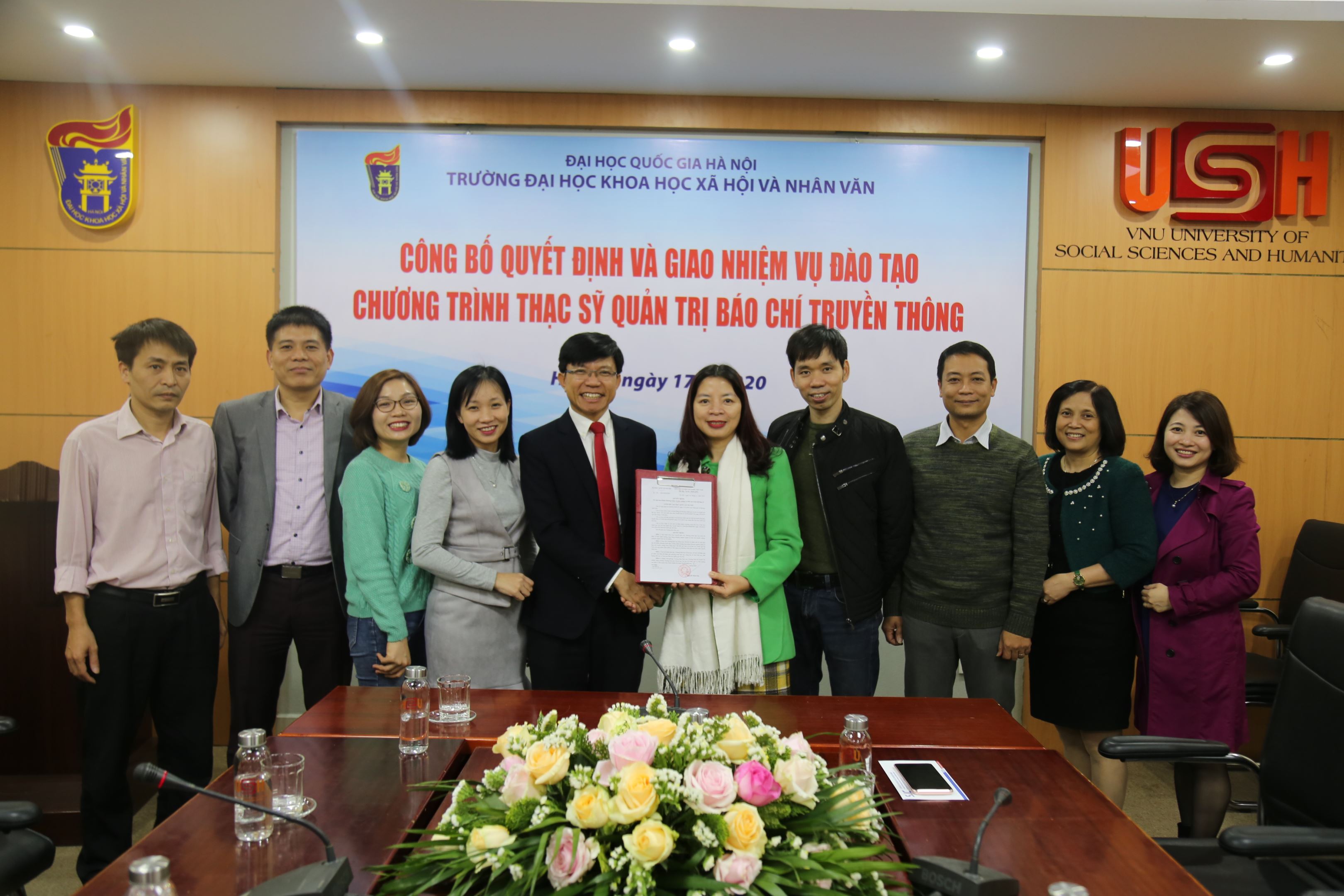
The Institute received the decision to implement the Master of Journalism and Media Management training program in early 2020.
People are the decisive factor in the strength of a collective. The successes that the Institute has achieved come from the planning and effective use of staff by the Party Committee. The staff consists of 26 officers and lecturers with an average age of around 30, of which 90% have PhD qualifications, including many teachers trained at the world's leading universities in journalism and communication. The teachers are the core that creates the unique "quality" in the professional activities of the Institute, and are experts in core journalism fields such as: print, electronic, television, radio, multimedia journalism, data journalism, journalism and communication management, crisis management, journalism economics, etc. The Party Committee of the Institute has also had solutions to attract a team of experts, managers, and leaders in the journalism and communication industry, etc. to collaborate and teach part-time at the Institute. Thanks to that, the research and training activities of journalism and communication at the Institute are both rich in academic and scholarly content but also rich in practicality due to the close connection with the quality staff of external press agencies. At the same time, journalism and communication students have the opportunity to participate in the "Incubator" project with television stations, work as real reporters at newspaper offices, participate in media projects with organizations outside the school... while still in school.
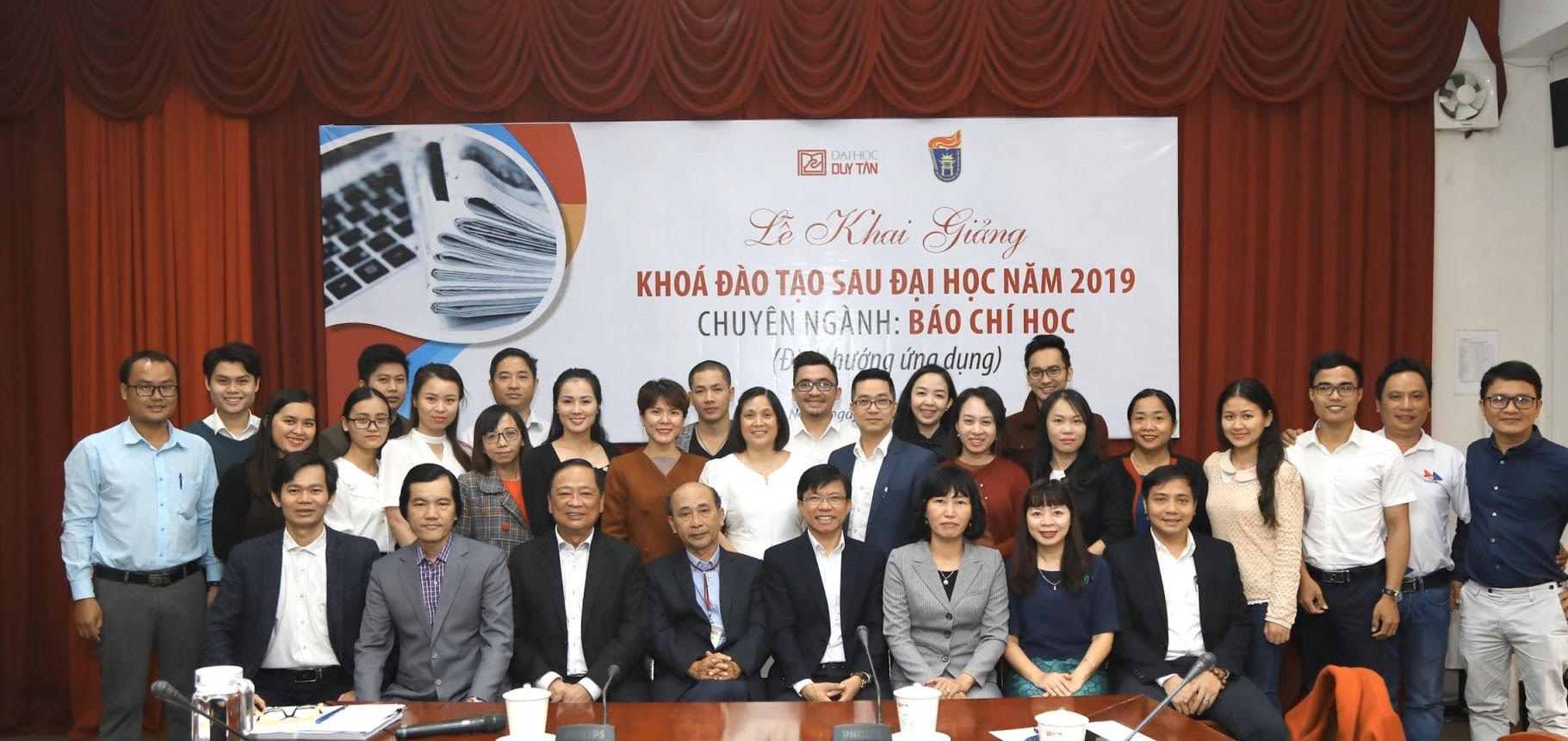
Opening of Master of Applied Journalism class in Da Nang (December 2019)
In the process of performing its tasks, the Institute's Party Cell has always received direct and effective attention and guidance from the Party Committee of the University of Social Sciences and Humanities. At the same time, the Party Cell and the Institute's Board of Directors always identify political and ideological work as an important and regular task. The Party Cell has led the unit to promote solidarity and political courage in the face of challenges and difficulties, creating consensus and unity in the perception and actions of all cadres and Party members for the goal of building and developing the unit, contributing practically and effectively to the cause of building and developing the University of Social Sciences and Humanities (VNU).
Continuing the motto "Proactive - Creative - Development""
During the process of construction and development, the Party Committee, the Board of Directors and the entire team of teachers and staff have anticipated the rapid changes of the Fourth Industrial Revolution with its impacts on the field of journalism and communication to find the fastest and most effective adaptation methods. Since then, the Institute of Journalism and Communication has actively transformed the training structure to meet the requirements of the country and the times.
But what is there, what core values must continue to be preserved and promoted? What remains unchanged in the team of Party members of the Institute of Journalism and Communication is the desire to seek new realities and new goals. What already exists will be replaced by something new, old ways of doing things, old skills, even research products, training and services that are still attractive today may have to change tomorrow according to social needs.
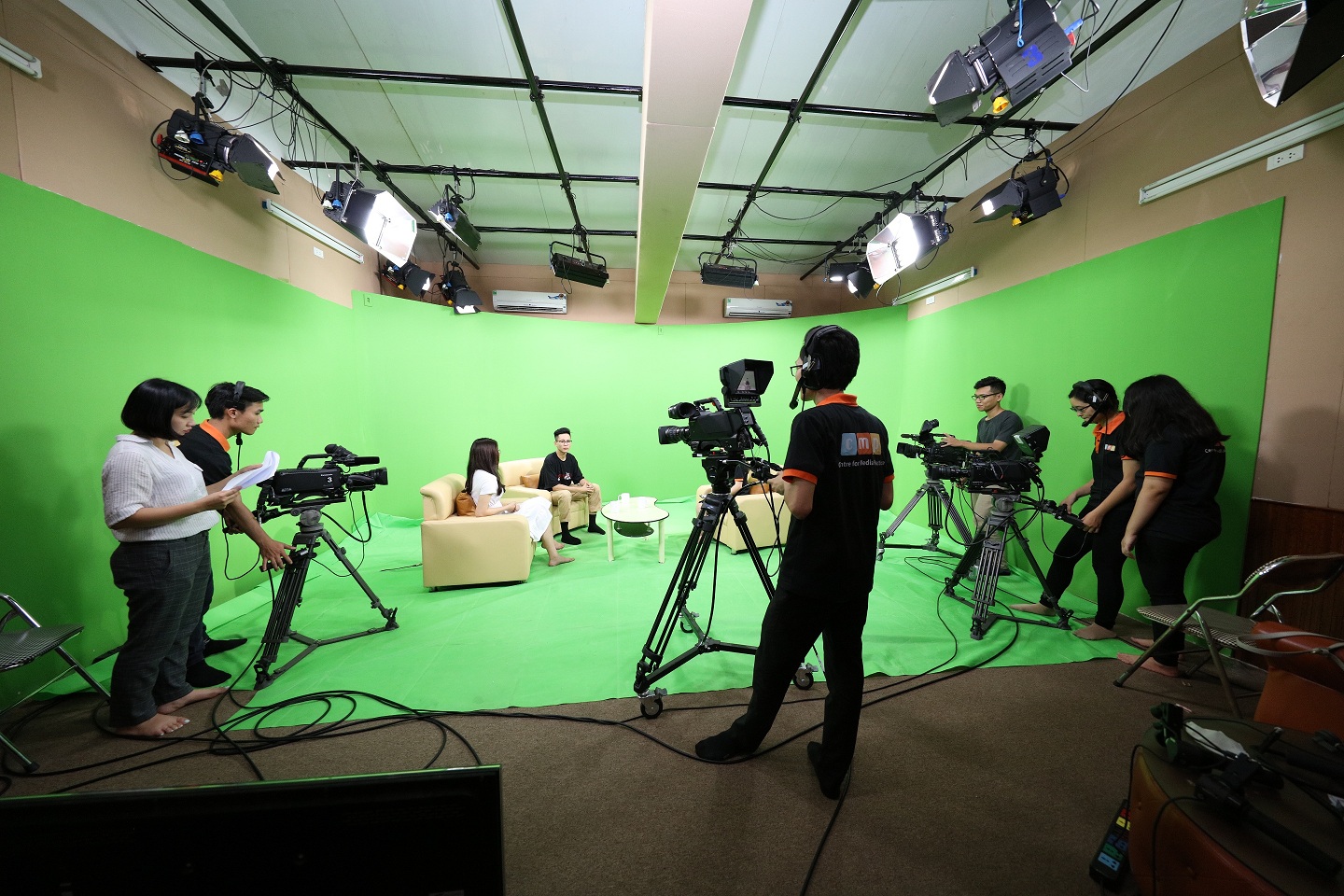
Journalism students practice working in a modern studio
The specific goals in the new term that the entire Party Cell is setting are to continuously affirm its leading position in the field of training human resources for journalism and communication in Vietnam, pioneering in providing society with high-quality human resources and a team of experts in the field of journalism and communication for the development of industry 4.0; Creating a solid foundation for innovation and development of training programs in the field of journalism and communication at all levels and in all sectors to reach regional and international quality standards. That is the formation of an academic environment with great potential, class, influence, and deep connections to gather a team of high-quality human resources, especially a team of lecturers and researchers with international qualifications.
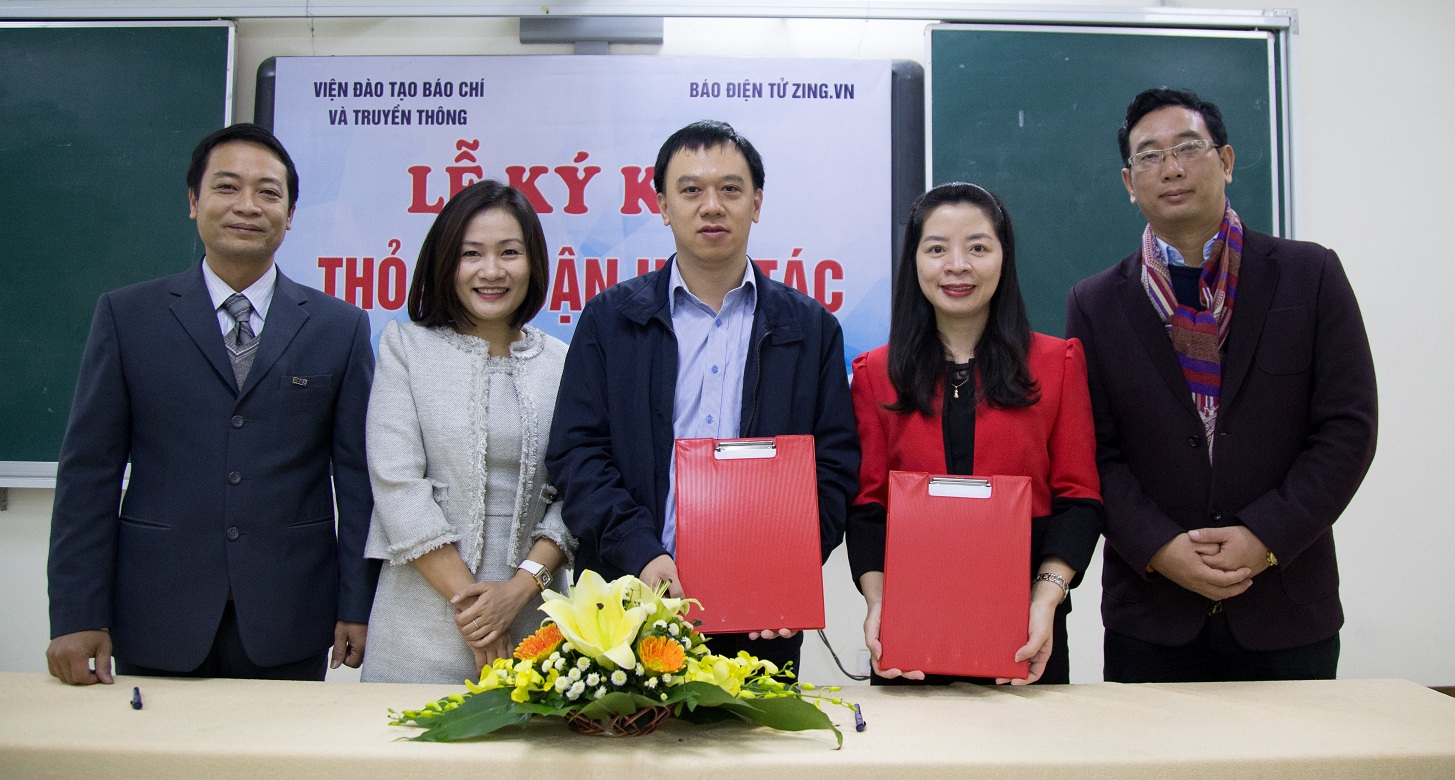
Cooperation signing ceremony between the Institute and Zing electronic newspaper
In 2020, the Institute of Journalism and Communication will celebrate its 30th anniversary of establishment and development. With the motto "Proactive - Creative - Development", it is certain that the Institute of Journalism and Communication will certainly make important contributions to the development of the University of Social Sciences and Humanities, and Vietnam National University, Hanoi - both in the past and the future./.
Author:Party Cell of the Institute of Journalism and Communication Training